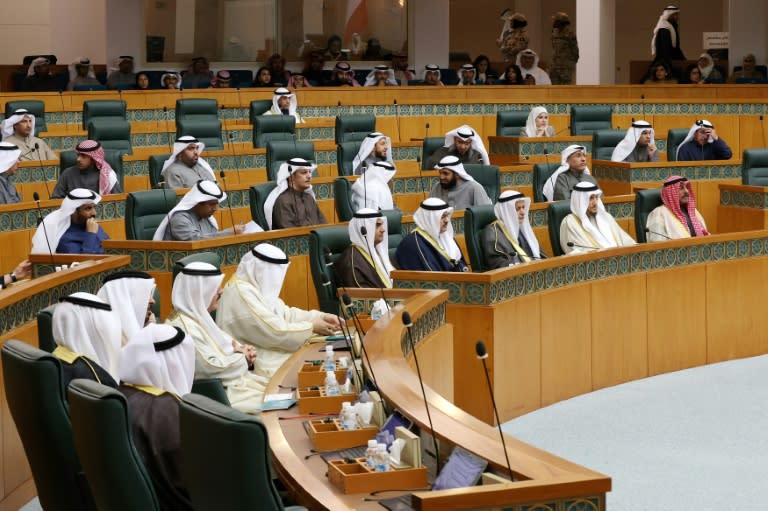What next after Kuwait parliament's dissolution?

The Kuwaiti emir's move to dissolve parliament and assume some of its powers has crippled the most active democratic institution in the monarchical Gulf.
Sheikh Meshal Al-Ahmad Al-Sabah's order, effectively halting political life, will be in place "for a period not exceeding four years", official media said on Friday.
The 83-year-old has taken aim at the constant stand-offs between the elected parliament and the royal-appointed government since he came to the throne in December.
- What's behind the emir's order? -
Despite a parliament which has greater powers than any other elected body in the resource-rich Gulf, Kuwait's Al-Sabah royal family controls political life to a large degree, including choosing government ministers.
Disagreements between elected MPs and the handpicked government have stopped parliament passing reforms aimed at diversifying the oil-reliant economy, leading to paralysis in deciding the budget and weakening foreign investment.
Ibrahim Al-Hammoud, a law professor at Kuwait University, called the suspension "a period of correction".
"There will be no elections or parliament, but the absence of democracy cannot be permanent," he said.
Parliament, which first met in 1963, was also suspended in 1976 and 1986, both in similar circumstances, Hammoud said.
- What triggered the latest crisis? -
The emir's order followed the latest stand-off between parliament and the ruling family, and came just six weeks after the third parliamentary elections in three years.
Prime Minister-designate Sheikh Ahmad Al-Abdallah Al-Sabah found himself unable to form a government, which must include at least one elected MP, as none of the lawmakers from the opposition-dominated parliament agreed to join.
On Friday the emir hit out at "interference" by some legislators and the imposition of "conditions" by others on the formation of the government.
"We have faced difficulties and obstacles that cannot be tolerated," he said in a speech on state TV.
The emir and government are "assuming the powers granted to the National Assembly" and suspending several articles of the constitution, the official Kuwait News Agency said.
According to Hammoud, parliament had "abused the tool of interpellation (questioning the government) and used it as a means of pressure, while deputies refused to participate in short-term governments".
"The emir judged that the public interest and stability were threatened," added the constitutional expert.
- What will happen now? -
Parliament could remain dissolved for years.
The previous suspensions lasted from 1976-1981 and 1986-1992 before they were lifted under popular and political pressure, said Kristian Coates Ulrichsen, a Middle East specialist at Rice University's Baker Institute for Public Policy in the United States.
Badr al-Saif, assistant professor of history at Kuwait University, said reactions were mixed in the country, an OPEC member with seven percent of the world's oil reserves.
"Hyper-nationalists in the country and across the region hailed the step as long overdue given the country's recurring crises and deadlocked political system," said Saif.
"The other pole laments the death of democracy."
However, "both positions require more nuance," Saif added, with much attention now focused on the government's actions.
"The legislature was not the sole authority responsible for the country's decay. They were joined by inept governments in the past," he said.
"One cannot blame it all on relative openness and freedom of expression. That's why all eyes are on the government's next steps because much more is expected of them now without parliamentary pressures.
"Will they be able to deliver?"
bur/ac/th/jsa

